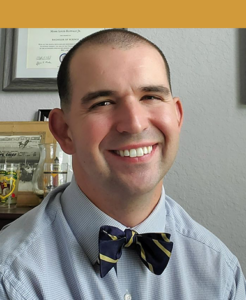2024 Evidence for Psychodynamic Psychotherapy (for Social Workers)
2024 Evidence for Psychodynamic Psychotherapy (for Social Workers)


The activity covers how evidence-based evaluations of psychodynamic psychotherapy. It presents examples and scenarios that help learners better understand how to discuss and use psychodynamic psychotherapy as a treatment method.
DATE CREATED: December 2023
COURSE LEARNING OBJECTIVES:
- Critically appraise Dr. Shedler's critique of "evidence-based" psychotherapy, its evolution, misuse, and implications. Identify his criticisms of its assumptions and how it deviates from its original meaning in medicine.
- Explain the meaning of transference and show how it’s intentionally used within the therapeutic process.
- Summarize the concept of the “frame” and demonstrate how the “frame” is applied within the therapeutic process.
- Criticize the misconceptions of psychodynamic therapy and consider how psychodynamic approaches may benefit patient outcomes.
Contributors
Jonathan Shedler, PhD psychodynamic psychologist and clinical professor in the Department of Psychiatry at the University of California, San Francisco
Mark L. Ruffalo, MSW, DPsa, Editor in Chief, The Carlat Psychotherapy Report. Psychotherapist in private practice in Tampa, Florida. Instructor of Psychiatry at the University of Central Florida College of Medicine and Adjunct Instructor of Psychiatry at Tufts University School of Medicine.
Geneva Valeska, BS, undergraduate degree in Neuroscience & Cognitive Science from the University of California, Santa Cruz. Podcast coordinator at Carlat Publishing.
References:
Cozolino, L. The Weekend University. How therapy can change your life. September 28, 2023. [available at: https://podcasts.apple.com/us/podcast/how-therapy-can-change-your-life-dr-louis-cozolino/id1233173966?i=1000629542685).
Cuijpers P, Miguel C, Harrer M, et al. Cognitive behavior therapy vs. control conditions, other psychotherapies, pharmacotherapies and combined treatment for depression: a comprehensive meta-analysis including 409 trials with 52,702 patients. World Psychiatry. 2023;22(1):105-115. doi:10.1002/wps.21069
Fonagy, P. The effectiveness of psychodynamic psychotherapies: an update. World Psychiatry. 2015;14(2):137-150. Doi:10.1002/wps.20235
Leichsenring, F, Abbass, A, Heim, N, et al. The status of psychodynamic psychotherapy as an empirically supported treatment for common mental disorders – an umbrella review based on updated criteria. World Psychiatry. 2023;22(2):286-304. Doi:10.1002/wps.21104
Leichsenring F, Luyten P, Abbass A, Steinert C. Psychodynamic therapy of depression. Aust N Z J Psychiatry. 2021;55(12):1202-1203. doi:10.1177/00048674211031481
Ruffalo, M. L. The therapeutic attitude in psychotherapy. Psychiatric Times. Published June 29, 2022. [available at: https://www.psychiatrictimes.com/view/the-therapeutic-attitude-in-psychotherapy] (https://www.psychiatrictimes.com/view/the-therapeutic-attitude-in-psychotherapy)
Sandell, R, Blomberg, J, Lazar, A, Carlsson, J, Broberg, J, Schubert, J. Varieties of long-term outcome among patients in psychoanalysis and long-term psychotherapy. A review of findings in the Stockholm outcome of psychoanalysis and psychotherapy project (stopp). Int J Psychoanal. 2000;81 ( pt 5):921-942
Schechter, M, Ronningstam, E, Herbstman, B, Goldblatt, M. J. (Psychotherapy with suicidal patients: the integrative psychodynamic approach of the Boston suicide study group. Medicina (Kaunas, Lithuania), 2019;55(6), 303. [published online 2019 Jun 24. Doi: 10.3390/medicina55060303] (https://doi.org/10.3390/medicina55060303)
Shedler, J. The efficacy of psychodynamic psychotherapy. Am Psychol. 2010;65(2):98-109. Doi:10.1037/a0018378
Yeomans, F, Caligor, E. What is neutrality in psychotherapy anyway? Psychiatric News. June 1, 2016. [accessed September 13, 2023. Available at: https://psychnews.psychiatryonline.org/doi/full/10.1176/appi.pn.2016.6a20](https://psychnews.psychiatryonline.org/doi/full/10.1176/appi.pn.2016.6a20)
________________________
CE CREDIT: 1 general
FEES: $20 for single activity, $79 for Annual subscription including additional materials
REFUND POLICY: purchasers and subscribers may cancel at any time for a full refund if not completely satisfied.
Course interaction
This reading-based online course is self-paced/non-interactive. Course questions can be directed to the author by email: asktheeditor@thecarlatreport.com. After purchase, login to the website here: https://www.thecarlatreport.com/user/login, enter your profile by clicking “welcome, [your first name] in the top right, and then choose the “purchased materials” tab on your profile. This course material will be accessible using the “view content” link to the right of the title.
Instructions for requesting accessibility:
If you need assistance accessing the course materials, please contact us.
System requirements
Carlat Publishing's website is as accessible possible, while at the same time maintaining security of your data. In order to access the website you will need:
- An internet connection for your computer, tablet, or smartphone.
- We recommend an up-to-date web browser such as Google Chrome, Mozilla Firefox, Safari, Edge, Internet Explorer, and iOS and Android mobile browsers.
- We recommend that you keep your computer operating system up-to-date with recommended security patches and anti-virus software.
Course completion & CE info Course completion requirements
To earn CE credit, social workers must purchase access, read the material, and complete the posttest (with a passing score of 80%) and course evaluation. Posttests may be retaken one time.
Certificates of completion will be emailed upon course completion.
The Carlat CME Institute, [#1908], is approved as an ACE provider to offer social work continuing education by the Association of Social Work Boards (ASWB) Approved Continuing Education (ACE) program. Regulatory boards are the final authority on courses accepted for continuing education credit. ACE provider approval period: April 30,2024 to April 30, 2025. Social workers completing this course receive 1 general continuing education credits.
For questions, concerns, or to request special accommodations, please call: 866-348-9279
Course Topic: Diagnosis and treatment of personality disorders
Course Date: Starting May 1, 2024
CE Credit Type: Enduring material - General CE
Target Audience: Social Workers



_-The-Breakthrough-Antipsychotic-That-Could-Change-Everything.jpg?1729528747)



